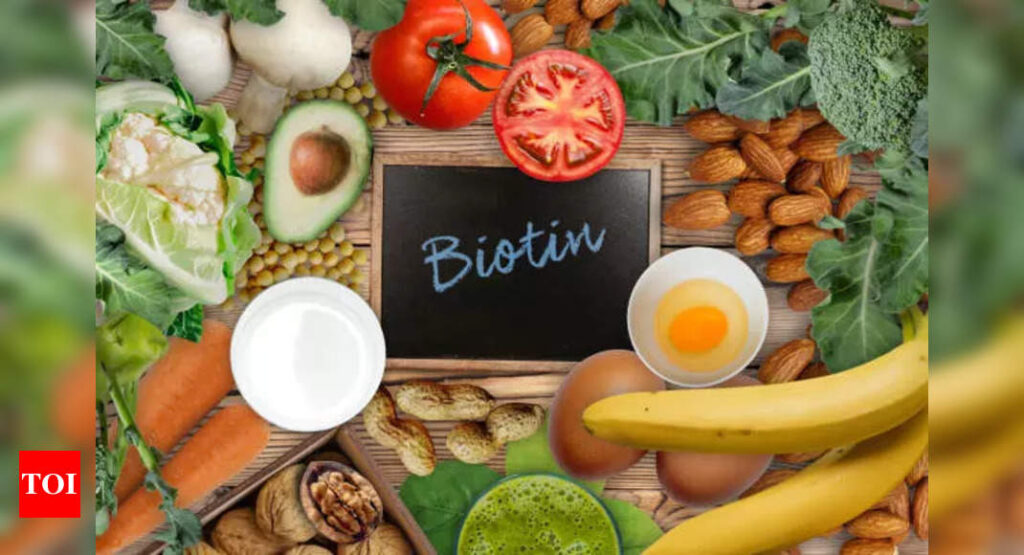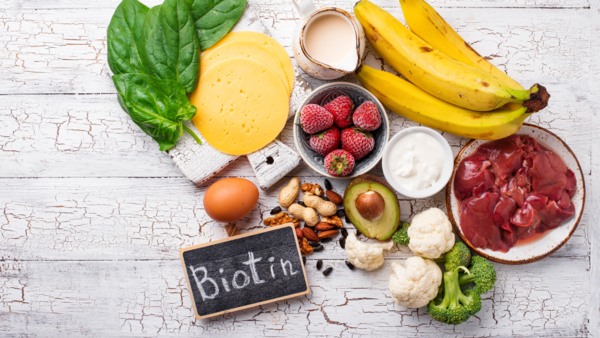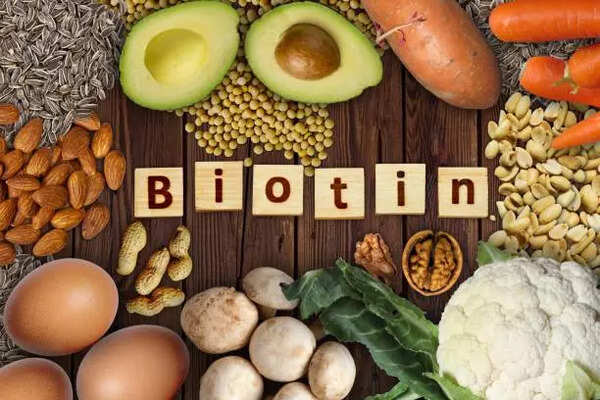Biotin for hair: The role Biotin for hair growth explained

Biotin, also known as Vitamin B7 or Vitamin H, has gained significant popularity in the world of hair care and growth. Many people turn to biotin supplements in hopes of achieving longer, stronger, and healthier hair. But what role does biotin actually play in hair growth, and is it truly the miracle vitamin it is often claimed to be? Let’s delve deeper into the science behind biotin, how it impacts hair growth, and whether supplementation is necessary for achieving healthier hair.
What is Biotin?
Biotin is a water-soluble B vitamin that plays a crucial role in managing metabolic functions, including the breakdown of carbohydrates, proteins, and fats. It is an essential nutrient that helps convert food into energy and supports various bodily functions, including cell growth and the maintenance of healthy skin, nails, and hair. Since biotin is water-soluble, it does not get stored in the body and needs to be consumed regularly through diet or supplements.
The role of Biotin in hair growth
Keratin production
Keratin is a structural protein that makes up the majority of our hair, skin, and nails. Biotin is known to enhance keratin infrastructure, which is why it is often linked to hair strength and resilience. A sufficient supply of biotin may contribute to improved hair texture and reduced breakage.
Cell regeneration and scalp health
Hair growth begins at the scalp, where hair follicles produce new strands of hair. Biotin plays a key role in cell regeneration, ensuring that hair follicles receive adequate nourishment to continue growing healthy hair. A deficiency in biotin can lead to brittle hair, increased hair shedding, and even hair thinning.
Prevention of hair loss
Although biotin deficiency is rare, it can lead to noticeable hair loss. People with underlying conditions such as biotinidase deficiency or those who consume excessive alcohol may be at a higher risk of developing a biotin deficiency. For individuals experiencing hair loss due to a lack of biotin, supplementation can be beneficial in restoring hair health.
Does Biotin really promote hair growth?
While biotin is essential for hair health, it is important to note that taking excessive amounts of biotin does not necessarily lead to faster hair growth in individuals who already have sufficient levels of the vitamin. Scientific evidence supporting the effectiveness of biotin supplements for hair growth in non-deficient individuals is limited. Most studies linking biotin to hair growth focus on cases of biotin deficiency rather than general supplementation.
Sources of Biotin
Biotin can be found naturally in many foods, making it relatively easy to incorporate into a balanced diet. Some of the best dietary sources of biotin include:
Egg yolks – One of the richest sources of biotin
Nuts and seeds – Almonds, walnuts, and sunflower seeds are great options
Legumes – Peanuts, soybeans, and lentils contain good amounts of biotin

Want stronger hair, glowing skin, and healthy nails? Vitamin B7 is your go-to! It also supports metabolism and helps regulate blood sugar levels.
Veg sources:
Almonds
Peanuts
Cauliflower
Walnuts
Fun fact: Cauliflower rice is a low-carb alternative that keeps your B7 levels up while helping with weight management!
Fish and meat – Salmon, tuna, liver, and poultry are excellent sources
Dairy products – Milk, cheese, and yogurt provide biotin along with other essential nutrients
Vegetables – Sweet potatoes, spinach, broccoli, and mushrooms contain biotin
Whole grains – Oats, wheat germ, and barley are good plant-based sources
Biotin supplements: Are they necessary?
For individuals who consume a well-balanced diet, additional biotin supplementation may not be necessary. However, people who experience hair thinning or brittle hair due to biotin deficiency may benefit from taking biotin supplements.
Who Might benefit from Biotin supplements?
Pregnant and breastfeeding women – Increased nutrient demands during pregnancy and lactation may require additional biotin intake.
People with biotin deficiency – Symptoms include hair loss, brittle nails, skin rashes, and fatigue.
Individuals with gastrointestinal disorders – Conditions such as Crohn’s disease or irritable bowel syndrome (IBS) can impair biotin absorption.
Those taking certain medications – Some antibiotics and anti-seizure medications can lower biotin levels.
People who consume excessive alcohol – Alcohol interferes with the absorption of biotin and other nutrients.
Potential side effects of Biotin supplements
Biotin is considered safe when taken in appropriate amounts, as excess biotin is usually excreted through urine. However, excessive intake may lead to:
Skin breakouts – Some individuals experience acne flare-ups due to high biotin consumption.
Digestive issues – Mild gastrointestinal discomfort, such as nausea or cramping, can occur.
Interference with lab tests – High doses of biotin may impact thyroid and cardiac test results, leading to misdiagnosis.

Biotin, also known as vitamin B7, is a water-soluble vitamin that plays a crucial role in supporting hair health, skin, and nails. When it comes to promoting hair growth and preventing hair loss, biotin is often a go-to nutrient. A deficiency in biotin can lead to thinning hair or hair loss, so it’s important to incorporate biotin-rich foods into your diet to maintain optimal hair health. Here are five natural sources of biotin that can help encourage hair growth:
Biotin plays a crucial role in hair health by supporting keratin production, scalp nourishment, and overall hair strength. While a deficiency in biotin can lead to hair loss, taking biotin supplements in excessive amounts does not necessarily result in faster hair growth. Most people can obtain sufficient biotin from a balanced diet, making supplementation unnecessary for those without a diagnosed deficiency. If you are experiencing hair loss or hair thinning, it is best to consult a healthcare professional to determine the root cause rather than relying solely on biotin supplements. Maintaining a healthy diet, reducing stress, and using proper hair care products are also essential steps for achieving healthy and vibrant hair.







